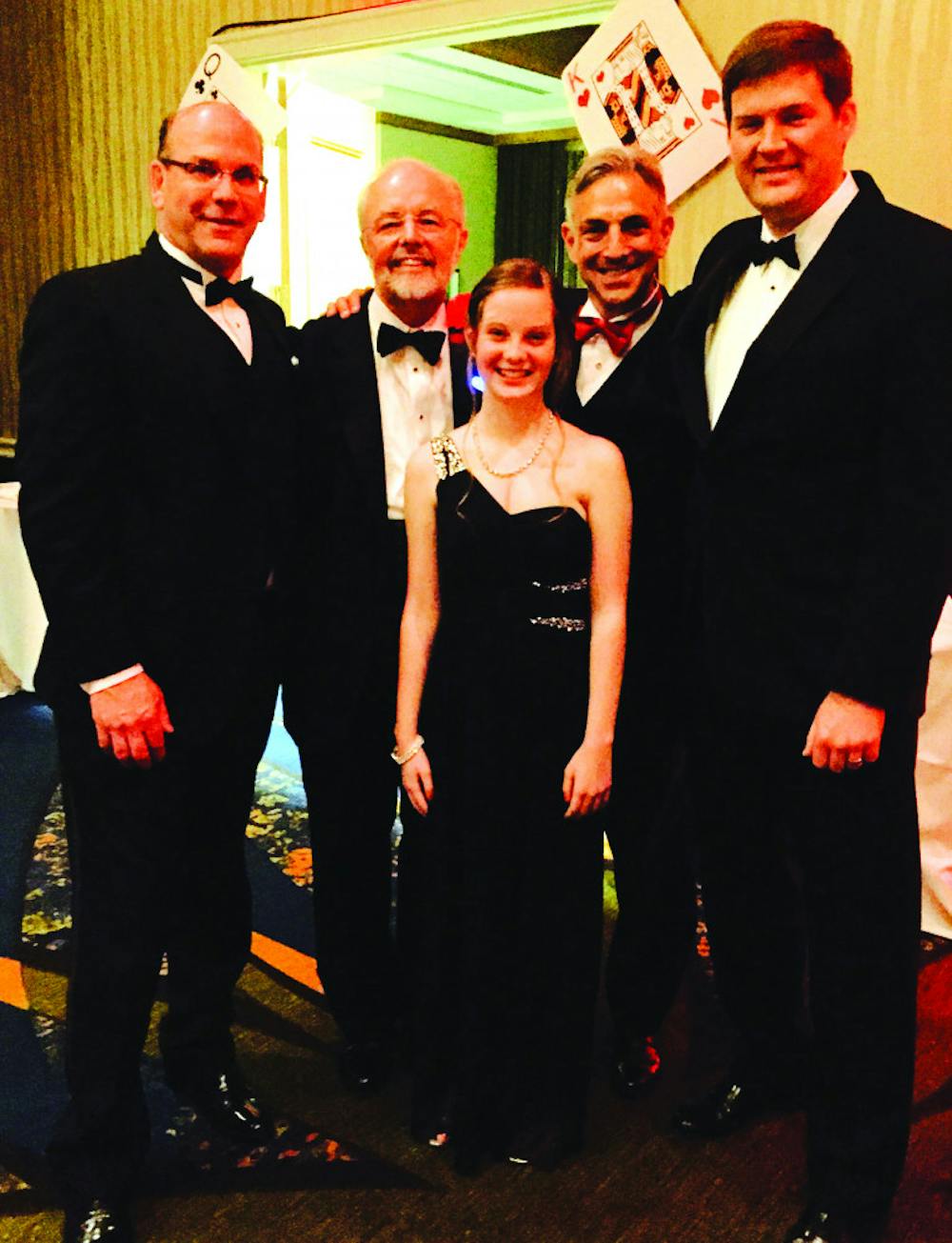Cristina Cinca was 13 when she held her sick heart in her hand.
Her doctors, of UF Health Shands Hospital, brought it to her after an eight-hour surgery in September 2014. Since she was 7, she suffered from restrictive cardiomyopathy, a rare disease that prevented her heart from properly filling with blood.
In the palm of her hand, the blond-haired preteen held a piece of her that had limited her life. But she was no longer tied down.
“I got to touch it and I got to look at it and it was just a really weird moment knowing that, you know, this really vital organ was not inside of me anymore and I had, like, somebody else’s,” said Cristina, now 15.
She was one of 31 pediatric patients to receive a heart transplant at the hospital between July 2013 to December 2015.
In a report released Jan. 5, the Scientific Registry of Transplant Recipients, a national database, ranked UF Health Shands Hospital as the No. 1 pediatric heart transplant program in the U.S.
Because of the 23 people who make up the hospital’s transplant team, all 31 of those children survived at least a year with their new hearts.
Heather Cinca, Cristina’s mother, said her family traveled to different hospitals across the nation in an effort to find the best doctors to treat her daughter.
“We came to the realization that the best place for us to be would be in Gainesville at UF Health because they have an amazing team there,” said the 47-year-old, whose family lives in Cocoa Beach, Florida. “We were in great hands. We knew that.”
Cristina spent about two and a half years on and off the transplant waiting list, Cinca said.
On July 1, 2014, the family received a call.
A heart was ready and waiting for Cristina. But at the time, she was suffering from a case of pneumonia, which disqualified her from being able to take on a new heart.
Two months later, the Cincas got another call. A different heart was waiting.
“I was for sure more excited than I was nervous that time,” Cristina Cinca said. “I was ready. I knew that this was my shot.”
• • •
Heather Cinca said the successful surgery was performed by Dr. Mark Bleiweis.
Bleiweis, the director of the UF Health Congenital Heart Center and the chief of congenital cardiothoracic surgery, said the program’s success is due to his team.
“I think we’ve assembled a phenomenal group of doctors and nurses and transplant coordinators and all of the staff that we need to take care of these very complex patients,” he said.
He said doctors at UF Health perform the most pediatric heart and lung transplants in the nation. To receive a new heart, patients can spend months, or sometimes years, waiting.
“We also kind of have to take a moment to recognize the wonderful gift that the donor family has given to us,” Bleiweis said. “I feel blessed every day that I get to do this, and it’s hard work, but it doesn’t feel like work.”
Ed Jimenez, the CEO of UF Shands, said he’s excited the hospital has risen to the top of pediatric heart transplants.
“It signifies that, at UF Health, we’ve had the chance for some time now to build an amazing team,” Jimenez said.
He said the transplants are successful because of more than just the surgeons.
“It takes a whole army of people and it starts with the moment our team identifies that a patient is sick enough that they need to be considered for a new heart,” he said. “We take care of the patients for life afterwards.”
Jimenez said the transplant team, which includes nurses, doctors, technicians and other workers, have changed the lives of patients and families. The recent report proves that, he said.
“The people that work here have proven, now through objective data, that they can deliver amazing results,” he said. “They wake up every day knowing that they have a chance to make a difference. Every night, they go home knowing that they’ve made a difference and they touch people in life-altering ways.”
• • •
Cristina’s new heart has changed her life, her mother said.
Before, her heart condition forced her to need a wheelchair to navigate the hallways at school. Now, she plays tennis, rides her bike and wakeboards with no physical restrictions, her mother said.
“She’s gone from this girl who, you know, I couldn’t get her down to the beach to, she’s turning 16 next month and she, I can’t keep up with her,” Cinca said.
Cristina Cinca said before her transplant, she didn’t realize how much her heart affected her life. But because of the doctors at Shands, who are like family to the Cincas now, and her new heart, she sees what she’s been missing out on.
“Now, after the transplant, I see that this new life I have is so much better,” she said. “I can literally do anything I want.”
This article has been updated to reflect the proper spelling of Cristina Cinca's name.
Dr. Biagio Pietra, Dr. Jay Fricker, Dr. Mark Bleiweis and Dr. James Fudge pose with Cristina Cinca, who received a heart transplant from UF Health Shands Hospital in September 2014, at the American Heart Association Heart Ball on Feb. 14, 2016. Bleiweis performed Cinca’s surgery, and Fricker was her cardiologist.






